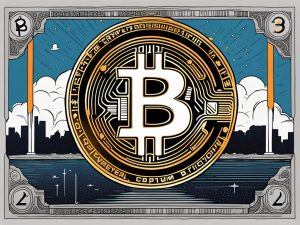Blockchain Technology: A Solution to Counterfeit Medicines
Counterfeit medicines pose a significant challenge in the pharmaceutical sector, with an estimated impact of $5.3 billion this year. However, experts are optimistic about the potential of blockchain technology to address this pressing concern.
The Potential of Blockchain in Safeguarding the Pharmaceutical Sector
Hyperspace Technologies CEO Oluseyi Akindeinde highlighted the potential of blockchain in safeguarding the pharmaceutical sector. He emphasized that by serializing pharmaceutical products and incorporating verifiable security features through blockchain, the circulation of counterfeit medicines can be significantly hindered.
Akindeinde proposed integrating encrypted non-fungible token (NFT) tags into pharmaceutical products. These tags create unique identities and offer an additional layer of security, ensuring the integrity of digital assets on the blockchain.
The Impact of Counterfeit Medicines
Counterfeit medicines not only result in financial losses but also lead to a staggering 500,000 deaths annually in sub-Saharan Africa alone. The United Nations reports that 267,000 deaths are linked to counterfeit antimalarial drugs and substandard antibiotics contribute to 169,271 deaths caused by severe pneumonia.
The National Agency for Food and Drug Administration and Control has taken action against counterfeit medicine trade, destroying over N500 million worth of fake and expired goods in Abuja. The destroyed drugs included psychoactive substances, antibiotics, herbal remedies, and drugs confiscated from unauthorized vendors.
Smart Contracts: An Antidote to Drug Counterfeiting
Akindeinde explains that blockchain technology offers an immutable solution through smart contracts. Each pharmaceutical product receives a unique identification tag within a smart contract, making manipulation virtually impossible.
Blockchain technology has the potential to restore trust and integrity in the healthcare system. By providing authentication and transparency across the entire pharmaceutical value chain, from raw materials to manufacturing and distribution, blockchain can instill confidence in consumers and stakeholders.
The Potential of Blockchain Technology
While challenges such as regulatory frameworks and industry collaboration remain, blockchain technology offers hope in combating counterfeit medicines and protecting lives. The pharmaceutical sector has the opportunity to leverage this transformative technology for a safer and more reliable future.
Featured image from Freepik, chart from TradingView


 By
By
 By
By
 By
By
 By
By
